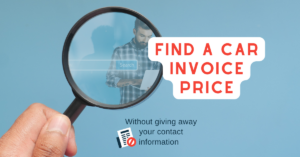Deciding whether to lease or buy a car can be complicated, particularly when considering the tax implications.
While both options have their own sets of advantages, leasing often provides more immediate financial flexibility, particularly in terms of lower monthly payments and initial costs.
Many of our clients are using a vehicle for business purposes and leasing can offer significant tax benefits, such as the ability to deduct a portion of lease payments.
On the other hand, purchasing a car can be more cost-effective in the long run, especially for those who intend to keep their vehicle for many years.
Buying allows you to claim tax benefits like depreciation, and over time, these savings can outweigh the initial higher costs.
Furthermore, owning a car gives you more control over mileage and the overall condition of the vehicle, avoiding potential fees and restrictions associated with leases.
Understanding the specific tax benefits and the overall financial impact of leasing versus buying is essential for making an informed decision. If you are a business owner, comparing the factors discussed in this article will help you decide whether leasing is right for your situation.
Comparing these factors such as monthly payments, long-term costs, and tax deductions, can help you determine which option aligns best with your financial goals and needs.
Key Takeaways
- Leasing offers significant tax deductions and lower monthly payments.
- Buying a car may be more cost-effective over the long term due to depreciation tax benefits.
- Assessing your financial goals and usage needs is crucial for making the best decision.
Understanding Car Ownership Costs
When owning a car, it’s crucial to be aware of the various costs involved, including depreciation, insurance, and maintenance. Each of these elements can significantly affect the total expense of car ownership.
Depreciation and Car Value
Depreciation is the reduction in a car’s value over time. It’s one of the most significant costs of owning a vehicle. New cars typically lose about 20-30% of their value in the first year and continue to depreciate in subsequent years.
This means that if a car is worth $30,000 new, it might only be worth around $21,000 after one year. Understanding this can help in evaluating whether buying or leasing is the better option for you. Depreciation also determines the resale value of the car, affecting long-term financial planning.
Insurance Considerations
Insurance is another major expense associated with car ownership. The cost of insurance depends on several factors, including the car’s make and model, the driver’s record, and location. Higher-end cars typically have higher insurance premiums.
Regularly comparing insurance quotes can help in finding the best rate. Additionally, some cars may qualify for discounts based on safety features or low mileage.
Ensuring that the insurance coverage matches the value and usage of the car is crucial to avoid overpaying.
Maintenance and Repairs
Maintenance and repairs are ongoing costs that can add up over time. Routine maintenance like oil changes, tire rotations, and brake inspections are essential for keeping the car in good condition. These costs can be predicted and planned for.
Repairs, on the other hand, can be unexpected. Wear and tear on parts like tires, brakes, and the transmission can lead to costly repairs.
Budgeting for these potential expenses can prevent financial strain. Regular maintenance can also help to mitigate some repair costs by catching issues early before they become major problems.
Tax Implications of Leasing vs Buying
When deciding whether to lease or buy a car for business use, understanding the different tax implications is crucial. Key factors include initial costs, monthly payments, deductible expenses, and depreciation deductions.
Initial Costs and Monthly Payments
Leasing a car generally requires lower initial costs and monthly payments compared to buying. Leases often include a down payment and the first month’s payment, making it easier to start using the vehicle.
In contrast, buying a car includes paying the full purchase price or taking out a loan. This involves a down payment and interest payments over time.
Monthly payments on a loan are usually higher than lease payments due to the interest rate and the shorter term of leases.
Tax Deductible Expenses for Leased and Purchased Cars
Leased Cars:
- Lease payments are deductible as a business expense.
- Deductible amount is proportional to the business use percentage.
- Sales tax on lease payments can also be deductible.
Purchased Cars:
- Deductions include business use percentage of car loan interest.
- Operating and maintenance costs, such as fuel and repairs, are deductible.
- Section 179 allows immediate deductions for the full purchase price if the vehicle qualifies.
Depreciation Deductions for Business Owners
Vehicles purchased for business use can be depreciated over time, providing a tax benefit. The IRS allows business owners to recover the cost of the vehicle through depreciation deductions, spreading the cost over several years.
Leased Cars:
- Depreciation is not applicable as the business does not own the vehicle.
- Benefit from deducting lease payments instead.
Purchased Cars:
- Depreciation deduction can be substantial, reducing taxable income significantly.
- Section 179 and bonus depreciation may allow larger deductions in the first year.
These differences highlight the importance of evaluating both leasing and buying when considering business vehicle expenses.
For more detailed information on the topic, check out the tax benefits of leasing vs buying a car and the specifics of buying or leasing a business vehicle.
Specific Benefits for Business and Self-Employed Individuals
Business owners and self-employed individuals can leverage significant tax advantages whether they choose to lease or buy a car.
These benefits can include various deductions, such as those for mileage or actual expenses, as well as specific provisions under the IRS code like the Section 179 deduction.
Mileage Deduction and Actual Expense Method
The IRS offers two primary methods for deducting vehicle expenses: the standard mileage rate and the actual expense method. With the standard mileage rate, business owners can deduct a set amount per mile driven for business purposes, which can simplify record-keeping. In 2024, the standard mileage rate is $0.62 per mile.
Alternatively, the actual expense method allows for deductions related to specific costs such as gas, oil, maintenance, tires, insurance, registration fees, and depreciation.
Self-employed individuals must keep detailed records of all expenses to substantiate their deductions. Both methods have their respective advantages, and the choice depends on which yields a higher deduction amount.
Section 179 Deduction and Limits
For those who choose to buy a car, the Section 179 deduction provides a significant tax advantage. This provision allows business owners to deduct the full purchase price of qualifying business vehicles up to a certain limit within the first year.
As of 2024, the maximum deduction is $1,160,000. This deduction can be particularly beneficial for those who purchase more expensive vehicles.
However, not all vehicles qualify. The vehicle must be used for business purposes at least 50% of the time. Additionally, limits apply to passenger vehicles—businesses can only depreciate up to $11,160 in the first year.
Leased cars do not qualify for Section 179 but can benefit from standard mileage or actual expense deductions.
Business Use vs Personal Use Considerations
A critical factor for both leased and purchased cars is the distinction between business and personal use. Only expenses attributable to business use can be deducted.
Business owners and self-employed individuals must accurately document the percentage of miles driven for business versus personal use. Tools like mileage logs can ensure compliance with IRS requirements.
For leased cars, any personal use can trigger what’s known as the income inclusion rule, which essentially reduces the deductible amount. Accurate tracking is crucial to avoid overestimating deductions and to stay compliant with IRS regulations.
Business owners should consider the administrative burden of maintaining these records against the potential tax benefits.
Calculating Costs and Savings
When deciding whether to lease or buy a car, it’s essential to understand the different costs and savings associated with each option.
This involves using tools like auto lease calculators, comparing auto loan rates, and assessing the impacts on your cash flow.
Using an Auto Lease Calculator
An auto lease calculator helps you understand potential expenses for leasing a car. By inputting your lease terms, such as monthly payment, lease duration, and vehicle usage, the calculator provides a detailed breakdown of costs.
This tool ensures accurate predictions of expenses including down payments, monthly payments, and potential end-of-lease charges. Comparing these figures to estimated costs of purchasing a vehicle helps identify the financial benefits of leasing.
Websites like Forbes feature a lease vs buy car calculator, making it easy to compare overall lease costs.
Comparing Auto Loan Rates
When considering whether to buy a car, comparing auto loan rates is crucial. Auto loan rates vary based on factors such as credit score, loan term, and the lender.
Typically, longer loan terms may come with higher interest rates, increasing total payments over time.
Reviewing rates from various lenders ensures competitive terms. Websites list average rates, which assist in determining the best financing options.
For instance, leasing generally involves lower monthly payments than auto loans, so comparing these payments can reveal potential savings.
Assessing Cash Flow Impacts
Understanding the impact on cash flow is another important factor in the lease vs. buy decision. Leasing usually requires a lower initial payment and smaller monthly payments, freeing up cash for other business expenses. This can be beneficial for businesses aiming to maintain steady cash flow.
Conversely, buying a car involves higher upfront costs, including a sizable down payment. Over time, owning a vehicle can lead to lower overall costs, particularly if the car is kept for a long period.
Assessing these impacts helps in aligning the decision with financial goals and cash flow requirements.
Contractual Considerations and End of Term Scenarios
When contemplating leasing a car vs buying, it is crucial to understand mileage limitations and penalties, as well as options at lease end. These contractual aspects can significantly impact your financial decisions.
Understanding Mileage Limitations and Penalties
Lease agreements typically come with mileage limitations. These limits are generally set at 12,000 to 15,000 miles per year. If you exceed the agreed-upon mileage, excess mileage fees can be costly, often ranging from $0.10 to $0.25 per mile over the limit.
Monitoring your miles is essential to avoid unexpected expenses. Plan trips and commutes wisely to stay within the set limits of your lease agreement.
Early termination of the lease can also incur expenses, making it vital to complete the term agreed upon initially.
Lease agreements may include options like purchasing additional miles upfront at a lower rate. This can be useful if you anticipate heavy usage but want to avoid the higher excess mileage fees later.
Options at Lease End
At the end of the term, several options are available for lessees. One common choice is returning the vehicle to the dealer. Ensure the car’s condition meets the lease agreement’s specifications to avoid wear and tear fees.
Another option is purchasing the vehicle. The buyout price is usually specified in the lease contract, reflecting the car’s residual (fair market) value at the end of the lease term.
If the market value is higher than the buyout price, there may be equity in the vehicle, making this a financially sound choice.
Lastly, some lessees may choose to lease a new vehicle. Dealers often provide incentives and deals for returning customers, which can mitigate some of the end-of-term costs and provide an updated model with new features.
Understanding these options helps make an informed decision at the lease’s conclusion.
Comparing Additional Costs and Responsibilities
Leasing and buying a car involve distinct financial responsibilities and expense differences. This section examines operating expenses, tax breaks, and other financial responsibilities to help you decide the best option for your business.
Operating Expenses for Leased vs Purchased Vehicles
Operating expenses vary significantly between leased and purchased vehicles. Leased vehicles often come with lower monthly costs, primarily covering the car’s depreciation and interest.
Maintenance might be included in the lease contract, reducing unforeseen expenses.
Purchased vehicles require paying for gasoline, oil changes, parking fees, registration fees, and tolls. Owners may also face higher insurance premiums due to the need for full coverage.
When buying a car, technology features and higher mileage limits usually cost extra. Owners must budget for routine maintenance and potential repairs, which can add up over time and differ from leasing agreements.
Tax Breaks and Considerations
Owners benefit from federal taxes by claiming depreciation and loan interest as deductible amounts. This is significant for businesses with high yearly mileage, offering substantial savings on taxes.
Leased vehicles provide different tax benefits. Lease payments are deductible, but the deduction amount is limited to the business percentage use of the vehicle. Leased car expenses, such as garage rent and registration fees, can also qualify as deductible business expenses.
Evaluating the lease-related benefits and comparing them with purchase deductions help businesses optimize tax liabilities over the vehicle’s lifespan.
Financial Responsibilities Beyond Monthly Costs
Beyond monthly costs, financial responsibilities differ for leased and owned vehicles. Purchased car owners need to factor in loan payments, and they might face equity depreciation over time. Unlike a lease, a purchased car’s value decreases, impacting future resale values.
Leased vehicles require adherence to terms and potential penalties. Exceeding mileage limits, wear and tear, and early lease termination incur extra costs.
These additional financial responsibilities can impact the overall expense of leasing a vehicle.
Purchasers must also consider long-term commitments. Acquiring a car involves investing in its upkeep and potential upgrades to maintain its value, whereas leases often grant the option to switch to new models every few years.
Frequently Asked Questions
Examining the tax benefits and disadvantages of leasing versus buying a car can help you make an informed decision. Here are answers to some common questions. You should contact your tax accountant for advice.
What are the tax implications of leasing a car for personal use?
Leasing a car for personal use generally does not offer tax deductions. Personal leases do not qualify for the same tax benefits as business leases. Deductions for lease payments and other related expenses are usually not allowed for personal use.
How does leasing a car compare to buying in terms of financial benefits?
Leasing a car can offer lower monthly payments compared to buying. However, buying a car allows you to take advantage of depreciation deductions and car loan interest deductions, which can lead to significant tax savings.
What are the disadvantages of leasing a car?
Leasing a car often comes with mileage restrictions and potential penalties for excessive wear and tear. Additionally, you do not build equity in the vehicle. At the end of the lease term, you own nothing and may have to start a new lease or purchase a vehicle.
Can you claim tax deductions on a leased car if you’re self-employed?
Yes, if you lease a car for business purposes and are self-employed, you can deduct the lease payments and related expenses. This includes a portion of your annual lease payment, which is based on the percentage of business use for the vehicle.
How does Section 179 apply to leasing versus buying a vehicle?
Section 179 is not applicable to leased vehicles. This section allows business owners to deduct the full purchase price of a qualifying vehicle purchased outright. Buying a vehicle under Section 179 can lead to immediate tax savings in the year the vehicle is placed in service.
Are there specific tax advantages associated with leasing a luxury car?
Leasing a luxury car may provide tax benefits similar to leasing any other business vehicle. Some business owners opt to lease luxury cars to manage cash flow better. However, luxury auto limits may cap the deductible amount, reducing the overall tax benefits.








